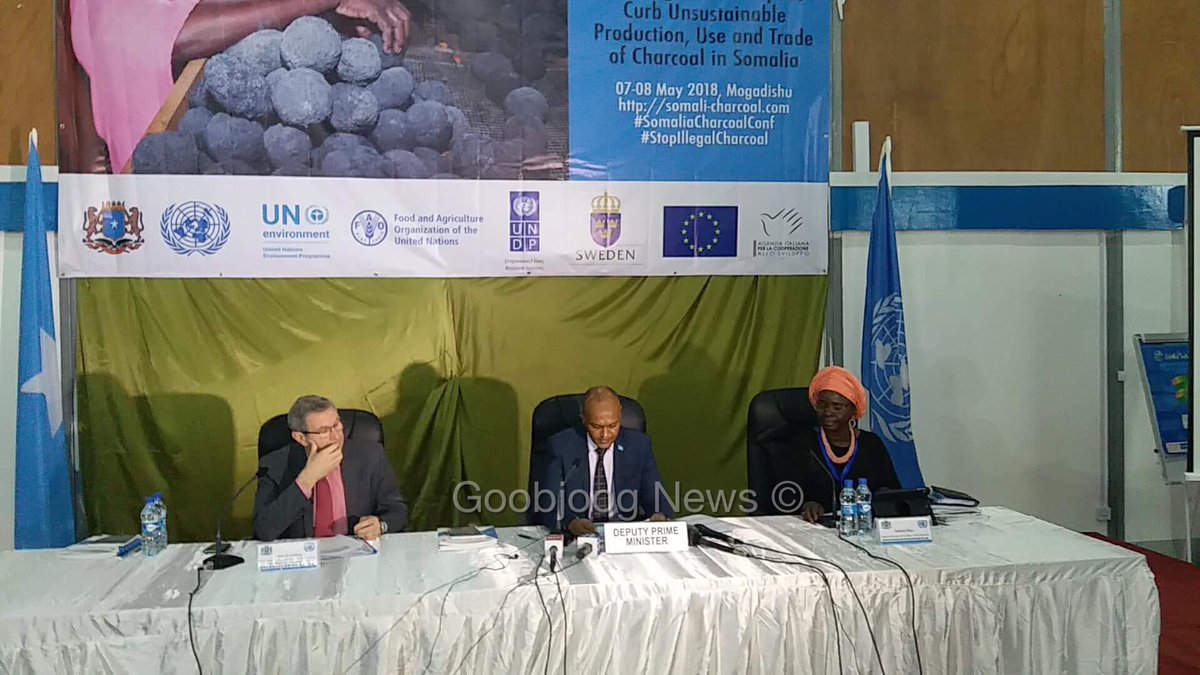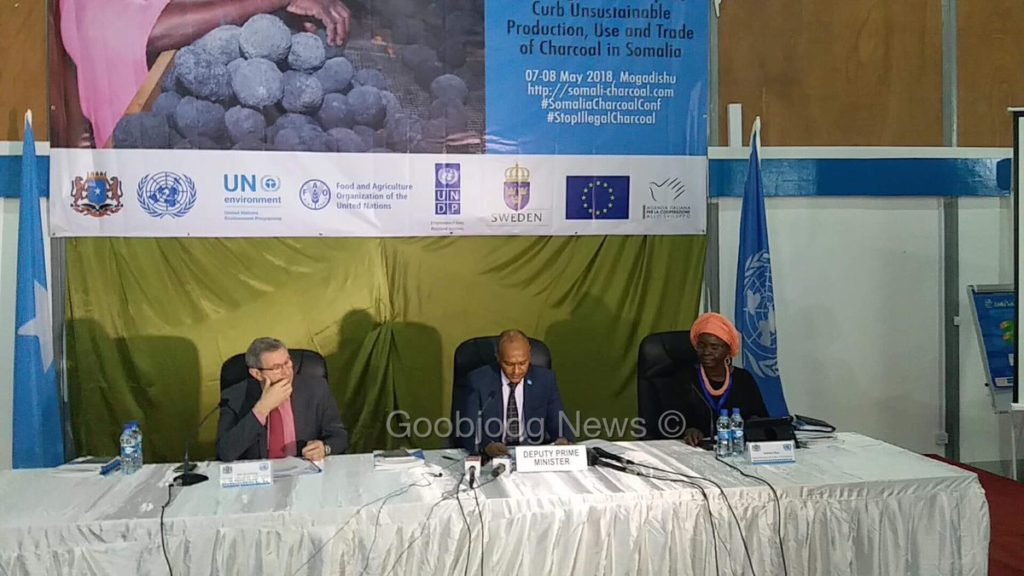International conference on charcoal opens in Mogadishu


An international conference on finding sustainable in curbing unsustainable charcoal production, use and trade opened in Mogadishu today amid concerns charcoal production and sale was leading to adverse weather conditions and financing terrorism in Somalia.
The conference which brings together the Somali government, UN agencies and other international stakeholders also seeks to marshal international response against illegal charcoal trade.
According to the Food and Agriculture Organisation (FAO), 8.2 million trees were felled for charcoal in Somalia between 2011 and 2017 accounting for one tree in every 30 seconds for the seven year period.
This has led to massive deforestation exposing communities to adverse weather effects characterized by long periods of droughts and flooding. FAO notes that areas most affected by charcoal production stretch from Jilib to the Somalia-Kenya border, with a focus around the ports of Kismaayo and Buur Gabo, where the charcoal is shipped off for export.
Gulf countries notably UAE are major importers of charcoal. Despite UN embargo on charcoal export from Somalia, charcoal trade has gone on unhindered and various UN Monitoring reports have established the nexus between charcoal trade and terrorism in Somalia.
In its 2017 report, the UN Monitoring Group for Somalia and Eritrea urged the UN Security Council to authorize member states to seize in accordance with their national legislation and within their territorial waters and seaports, vessels proved to have violated the embargo on the export of charcoal from Somalia, and to subsequently dispose of the vessel through a public auction, with the Member State of the crew members’ nationality being responsible for their repatriation.
The conference will conclude tomorrow.